
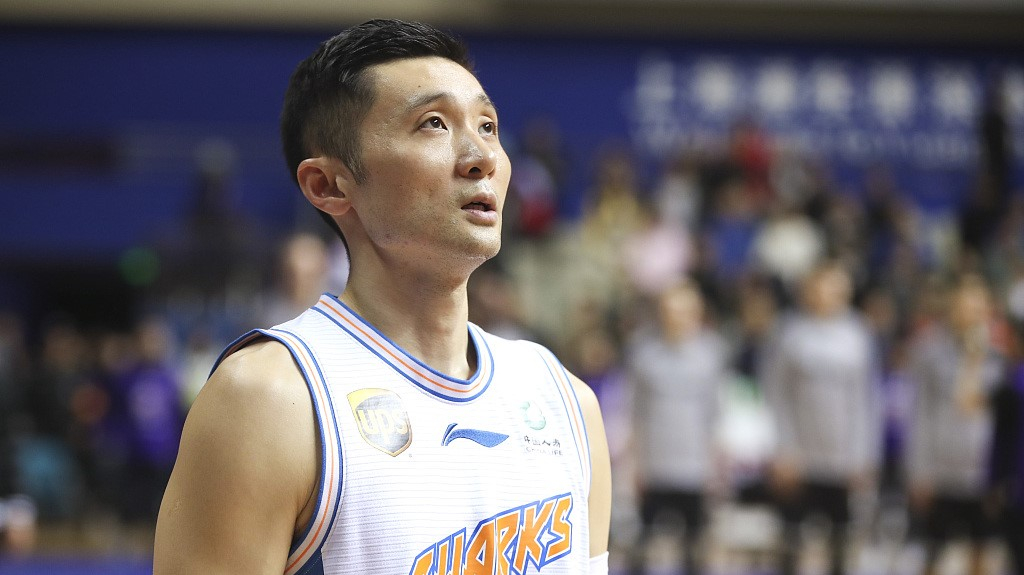
The CBA's Shanghai Sharks announced on Friday that Liu Wei, the greatest point guard in the team's history, officially retired as a player. The No. 8 jersey of Liu retired on the same day the team's new arena was put to use.
Born in 1980, Liu joined the CBA in the 1997-98 season and it took him less than a year to become the starting orchestrator of the Sharks. In the 2001-02 season, Liu and Yao Ming worked together to win the first championship for Shanghai.
In 2002 summer, Yao left for the NBA, leaving the Sharks to Liu who then reached the summit of his career next season, averaging 23.9 points, 6.7 rebounds and 5.3 assists. Since then, he was the commander of the team until 2014 when he left for the Xinjiang Flying Tigers and the Sichuan Blue Whales in the following four seasons.
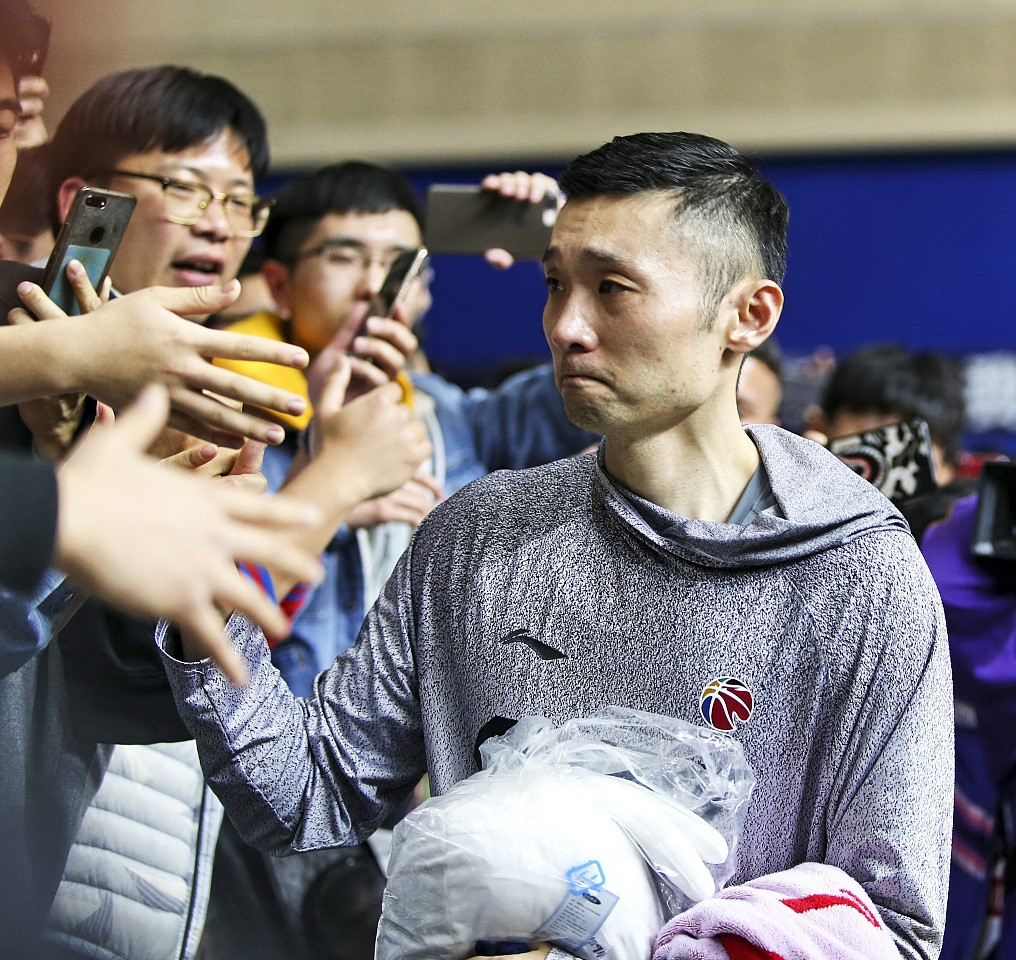
Liu Wei of the Shanghai Sharks says good bye to fans after Game 2 of the playoffs against the Beijing Ducks, March 19, 2019. /VCG Photo
Last season, Liu returned home to join the Sharks again. In the game against the Shandong Heroes on November 13, 2018, Liu made a perimeter shot to get his 10,000 points in his career, joining Zhu Fangyu and Yi Jianlian, and becoming the third player to achieve that in the league's history.
After Shanghai were knocked out by the Beijing Ducks in the playoffs, Liu was standing on the court, saying goodbye to the fans: "I'm happy to be back to Shanghai. Maybe I will put an end to my career here. I'm really happy to be here, thank you guys for spending the past year with me."
After 22 seasons in the league, Liu was only five assists away from surpassing Hu Xuefeng's 2,595 assists to become the CBA All-Time Assisting Leader.
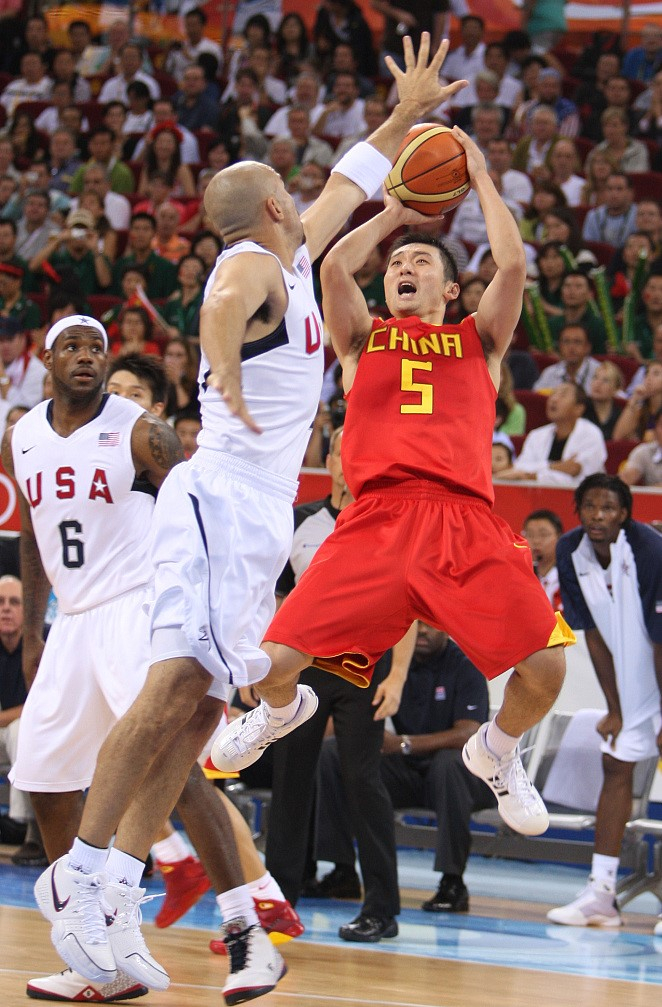
Liu Wei #5 of China shoots under defense in the game against USA at the Summer Olympics in Beijing, Augsut 10, 2008. /VCG Photo
However, that's only one little regret compared with all the disapprovals on his career in the Chinese national team.
Since Liu was recruited by China for the 2002 FIBA World Championship in the U.S., he played three World Championships, three Summer Olympics, almost every Asian Games and every FIBA Asia Championship. However, he received more blame than praise for his contributions to the national team.
In the basketball final of the 2002 Asian Games, Liu lost the ball to the double teaming of South Korean players, a turnover that cost China the gold medal. "That's the hardest moment of my career because that's when I learnt what it feels like to be universally condemned," said Liu.
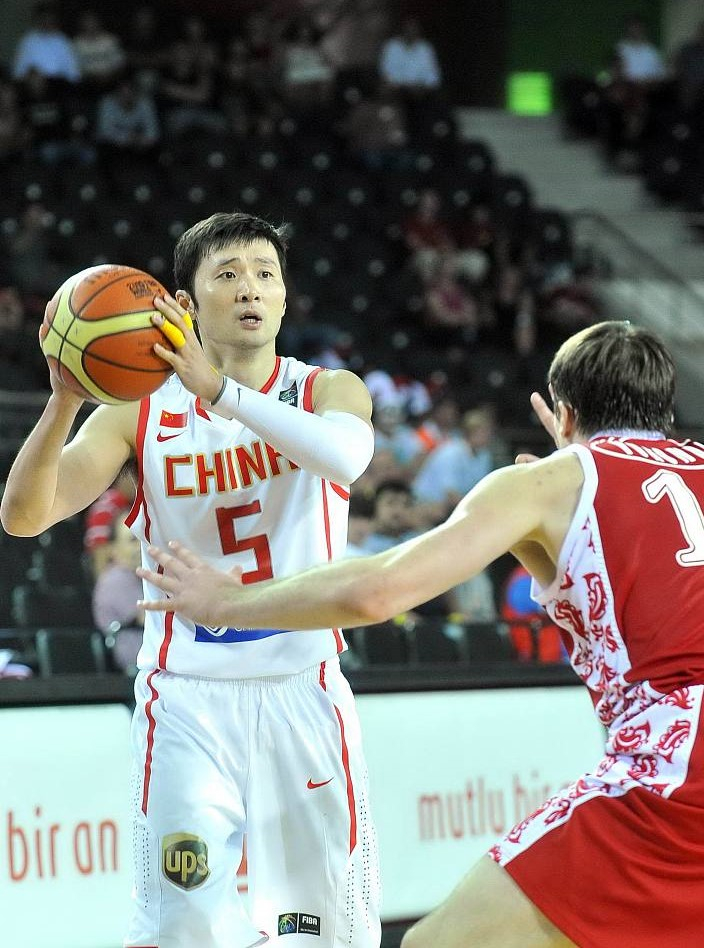
Liu Wei #5 of China looks for opportunities to pass the ball in the game against Russia at the FIBA World Championship in Turkey, September 1, 2010. /VCG Photo
Since then, trouble seemed to follow him. In the group game against Spain at the 2008 Summer Olympics, Liu's turnover in the end led to China's loss. In the game against Russia at the 2010 World Championship, Liu lost the ball which led to a game-winning 14-0 run by the opponent.
China's basketball veteran Qian Chenghai once talked about Liu in an interview: "Liu still has a lot to work on to catch up with the world's best guards. When I watch Steve Nash play, he can seize all the opportunities I could see and pass the ball to his teammates in the game. When he does not do that, it's only because he sees opportunities that I don't. Compared with Nash, Liu cannot even seize the opportunities I see."
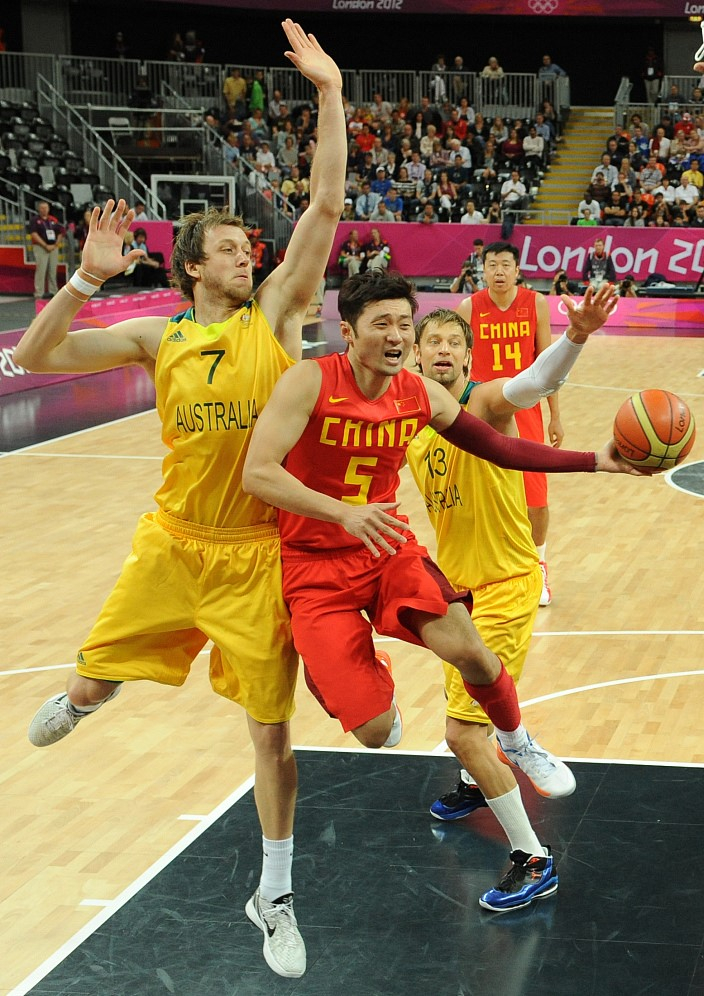
Liu Wei #5 of China vies with Joe Ingles #7 of Australia in the game at the Summer Olympics in London, August 2, 2012. /VCG Photo
Does the above mean that Liu is bad player? The answer is no.
Because Qian also said the following things in that interview: "But can you really blame Liu Wei? Of course you cannot, he is already the best point guard in Asia."
In that lost game against Spain in 2008, Liu scored China's highest 19 points by burying seven of 12 shots. Without his efforts, the game would have been long gone.
Because at the World Championship in Turkey, Liu played an average of 35.7 minutes per game. Among all team members, he was the one that played the most. In the Round of 16 game against Lithuania, he dropped 21 points, keeping the game from becoming a foregone until the last five minutes.
Thanks to all those crazy training sessions in his early years, Liu, for all his career, had China's best tussling ability in guard position. Fans used to joke about Liu being able to do nothing but to carry the ball through the court. However, they forgot in how many games that other Chinese guards could not do that under the full-court defense of the opponent. One of the reasons behind Liu's remembered turnovers in the international competitions is that he always faces the best perimeter defense of the opponent and he's the only doing that of all the Chinese guards.
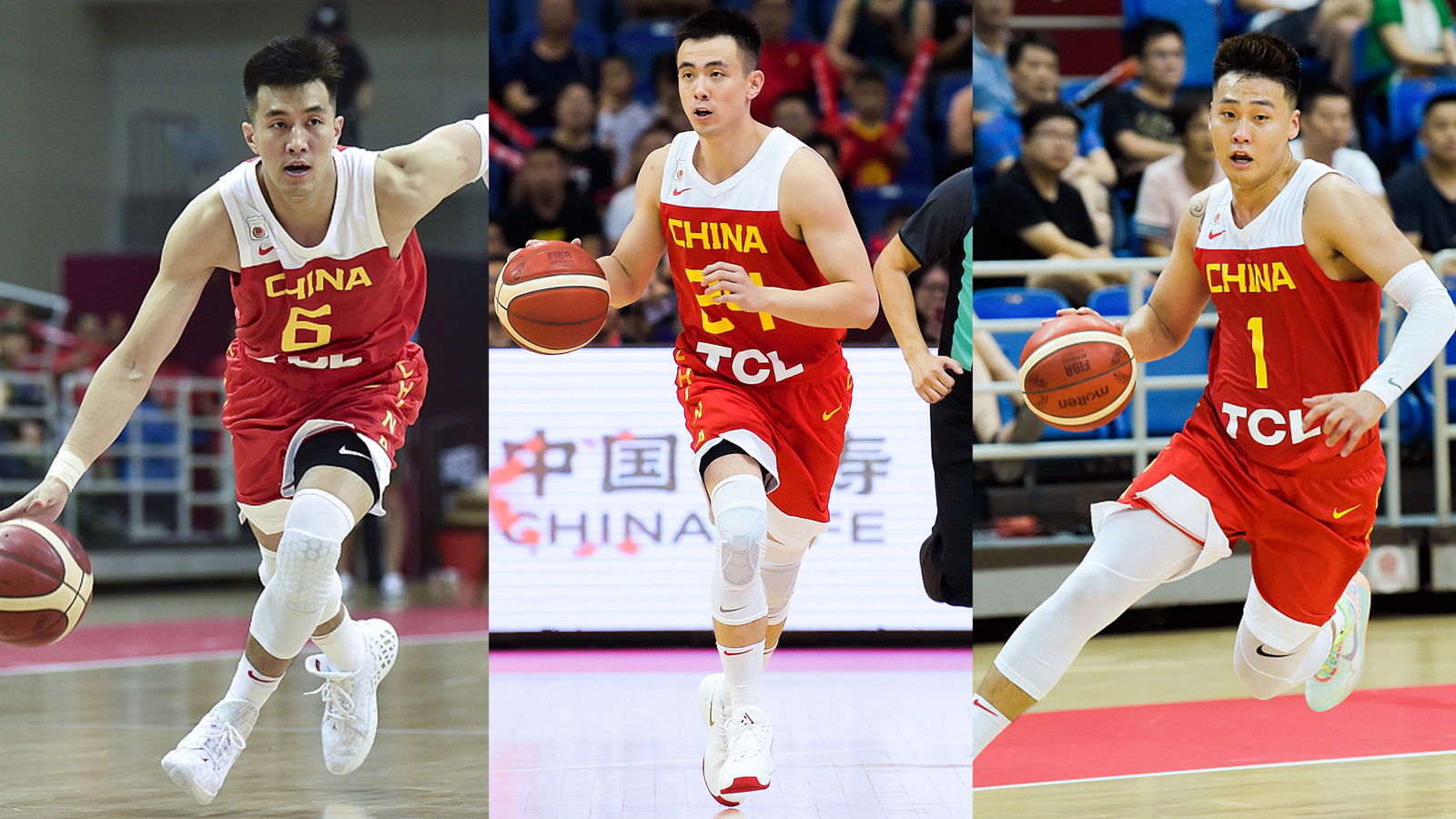
Guo Ailun #6, Zhao Jiwei #24 and Zhao Rui #1 all have a lot to work on before they can match Liu Wei as a point guard. /VCG Photo
Take a look at all these guards after Liu and you will find how great he is. Guo Ailun can penetrate like Liu did but he was not steady enough; Zhao Jiwei could orchestrate the game but he lacked Liu's individual attack; Zhao Rui shared Liu's strength but he is far way from becoming a qualified orchestrator.
Now, it's easy to understand what kind of guard Liu is. He is a first-class orchestrator who has good scoring capacity and is strong enough to compete with the best guards in the world. Most importantly, he was always willing to carry the heaviest task.
Quoting the Sharks official announcement: "Liu is the greatest guard in Sharks history."

Copyright © 2018 CGTN. Beijing ICP prepared NO.16065310-3
Copyright © 2018 CGTN. Beijing ICP prepared NO.16065310-3